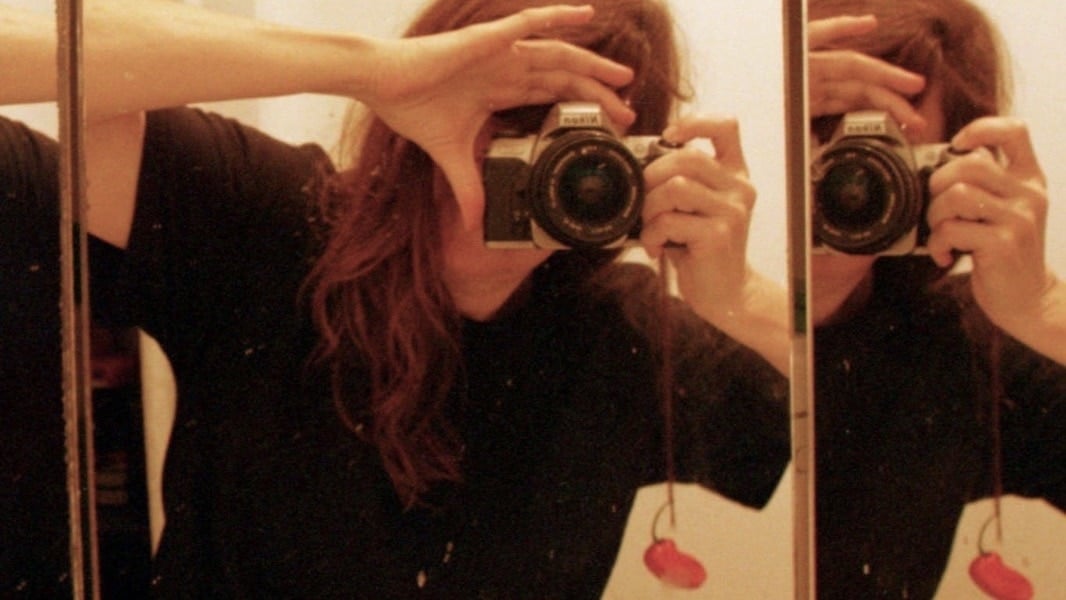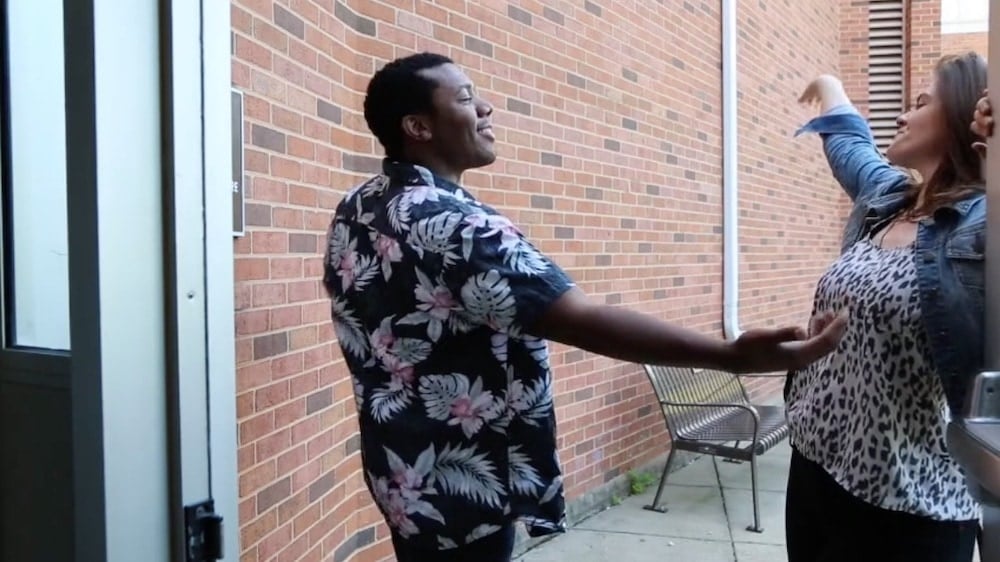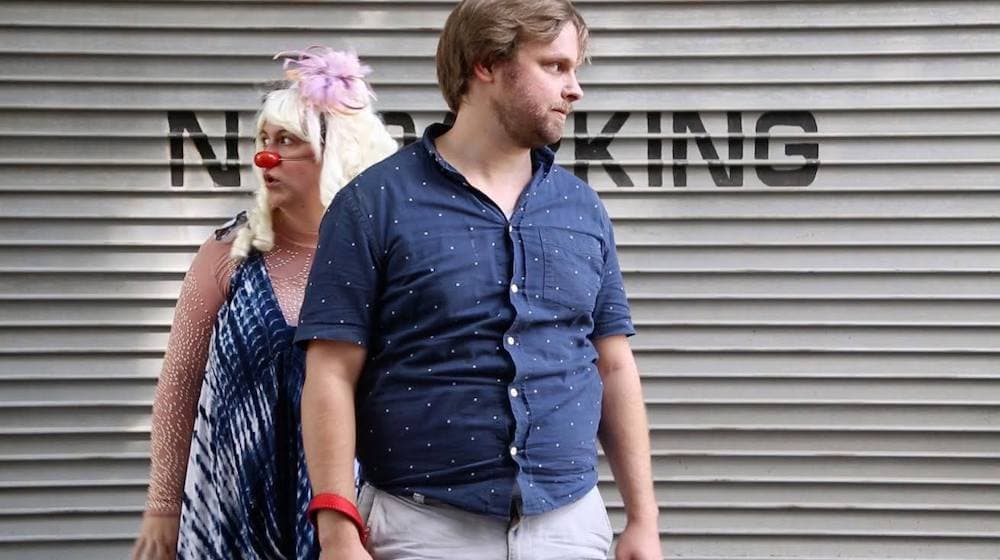Welcome to the sixth installment of Artists Who Inspire! During the continuing shutdown of live theater, DCMTA will use this space to lift up local theater artists who are finding ways to remain creative and share their craft.
For two decades Artistic Director Kathleen Akerley has led Longacre Lea, a DC-area theater company with a unique mission: “Physical Productions of Cerebral Works.” For many years Longacre Lea has been in an annual summer residence in the Callan Theatre at the Catholic University of America. During those summer residences the company was well known for producing a string of remarkable, sharp, absurdist original plays written and directed by Akerley.

With the outbreak of the COVID-19 pandemic, Longacre Lea went on a semi-hiatus from producing live theater. Akerley announced that the company was pivoting from its usual summer theater production and was in pre-production for multiple films.
Akerley’s move to develop and produce films whetted my appetite to ask her about her film work and other matters.
David: For those who may not be familiar with you beyond your theater credits, what are you doing for a living since COVID-19 took hold?
Kathleen: I’m the Film teacher at HB Woodlawn Secondary Program [in Arlington, Virginia]. I spent the fourth quarter of the 2019–2020 school year working with any students who still wanted to do work virtually (there was an extent to which grading was optional for them), and then the summer prepping to teach and grade their work virtually (because 2020–2021 for them is decidedly not optional!). As I write this we’ve finished three weeks of classes and it’s actually going well so far. I also sometimes do research for voice artists who record audio books, and I got a few of those jobs in the past six months.
Did you have any arts work put on hold due to the COVID-19 outbreak?
I was just a few weeks away from first read of a production of Julius Caesar I was directing for Avant Bard. I had an amazing cast — it was very disappointing — and I hope we still get to do it. Longacre Lea was also scheduled to start principal photography on our second feature film (we would be wrapping right around . . . now): for a while we thought we could push it to November, and now it’s just postponed indefinitely. But we will still film it, assuming the actors don’t age out of their roles haha.

What’s has been the worst/hardest thing about this quarantine period for you?
I’m really torn about how to answer this. On paper, there are some easy and objectively defensible choices for “worst” (I broke my shoulder in May; the freelance teaching jobs that I was positioned to expect became unavailable, so my budget took a nose dive and I had to move) but I don’t consciously perceive them as having been truly problematic — for one thing, I learned a lot at shoulder PT about the psychology of my posture and for another my new apartment building is a Coen Brothers film in its own right. Not being in a room with my students has robbed me of one of my primary teaching tools (using empathy to suss out what is blocking them and then creating an individualized curriculum to help them with that block) but teaching virtually has forced me to make my curriculum more coherent, which I’m sure no one minds. Sometimes I’m fleetingly re-awed by the awareness that there is nowhere to which to escape, and no human place that is free from this stress, but as with most awe it subsides and I go on. I guess it’s a tossup between how easy it is for me to get angry right now, and not being able just to assemble friends every time I have a short film idea.
What has been an accomplishment that you are proud of since the pandemic outbreak?
HB had a virtual graduation. My amazing boss checked with me to see if I wanted to produce ours instead of hiring a production company as most schools were doing. She let me take over the aesthetic of it when I asked that I be allowed into the school to get B roll, and to film (willing) students from a COVID-safe distance rather than just use still photos. Some seventy-five of the one-hundred-eight seniors agreed: so I not only got to basically make a feature-length film, and make it something artistic rather than merely practical; I got to give the gift of being celebrated (and looking amazing — a good camera is a beautiful thing) to young people who were feeling isolated, under-appreciated, and anti-climactic. And I edited the whole 102-minute extravaganza with my non-dominant hand because of the broken shoulder. And I delivered it to Arlington Media before the due date. I can’t crow about this without mentioning that I accidentally omitted a few stills sent in by a few of the students I’d filmed, but it’s one of the most gratifying and productive and worth-it four weeks I have ever spent and I still love watching that video.

How have you coping during the past months?
I have been bike riding a LOT. I have really enjoyed being on one of my routes and knowing I have the time and freedom just to turn into an alley if I feel like it and find things that might have seemed low priority before: I have found many intriguing spots in DC that I probably never would have noticed. Also I’ve been taking a ton of footage: especially at the beginning DC was like a zombie movie, and in fact my students recently finished up a zombie project based on the footage I got. I’ve been showing up for some rallies and marches. I make sure to have a meaty phone date with one friend or other every three or so days, and I allow myself to re-watch and re-re-watch Agents of S.H.I.E.L.D. and The Rookie without the slightest self-judgment.
Looking beyond your work in theater, please tell us about your move to film-making.
Film was actually my first love. I’m the kid who would see a movie, walk out and buy a ticket to the next showing, and walk in and see it again. Once when I was in high school I had a dream that actually rolled credits at the end. But theater was an actual option in high school and college, where film was not, and I hadn’t ever actually thought seriously about how to go about making a movie, so theater it was. Then in 2013 Séamus Miller, my collaborator-in-chief and the managing director of Longacre Lea, read Something Past in Front of the Light and said he wished he’d worked on it. So we started joking about making a film version, then they stopped being jokes, and then we had it planned, cast, and shot within a year and were pretty high on ourselves . . . until we discovered the edifice that is editing ;-p so the film wasn’t actually complete until 2019. In the meantime we started including more video in shows: it was crucial to Whipping, or The Football Hamlet in 2017. And the company has made two shorts: The Infection, about the effect of Trump’s White House on discourse among everyday people, and The Doors of Impression, about the overlooked humanity in chance meetings.

I see the world as a film. I didn’t find that out until we were on set for Something Past and the DP [Director of Photography, supervises camera and lighting crew in a film production] made an observation about how my perspective was enhancing his shot choices and in one of those moments that goes too fast to describe I suddenly realized that filmmaking is the artistic discipline that matches my brain: so closely, so pre-verbally, that I might have missed it.
What has the COVID-19 pandemic and the arts industry response to it taught us?
Honestly? The only lesson I’m sure has been taught, reiterated, and that we’ve aced our AP exam on is that traumatized people traumatize each other. With Facebook serving as an even more central platform of social and professional interaction during isolation, all the fear, fatigue, depression, hostility, and screaming need to have some say in a crumbling world gets squeezed through that oh-so-nuanced opening of performance and policing and I wonder if we’ll acknowledge it when we’re back in rooms together. If we even get into rooms together. I think the answer to that will depend significantly on what and where the rooms are and who’s in charge of them.
Films by Kathleen Akerley:
Previous artists in the series:
Artists Who Inspire! #5: Patrick Flynn
Artists Who Inspire! #4: John Becker
Artists Who Inspire! #3: Jordan Friend




